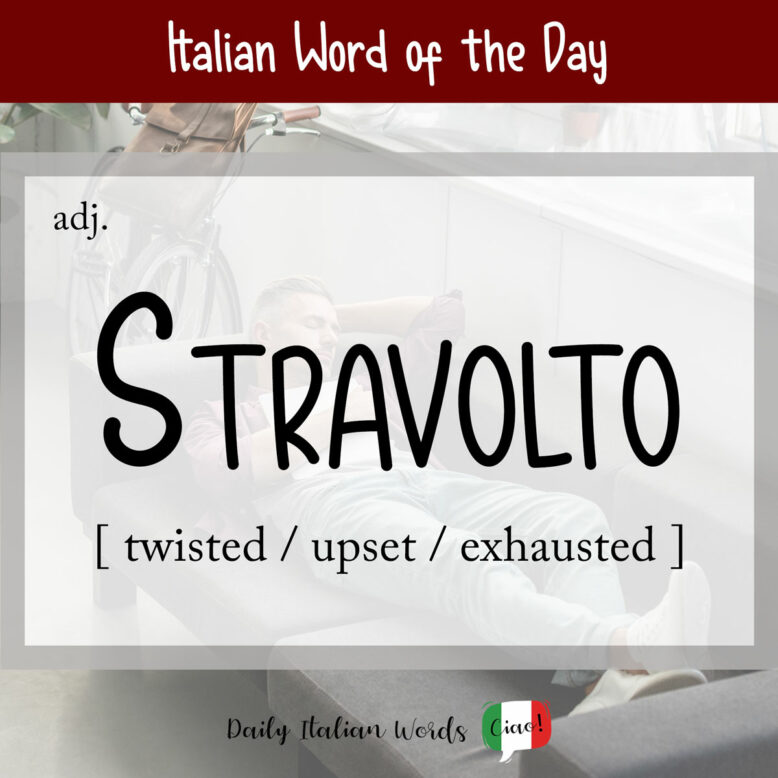Stravolto is an adjective you can expect to hear fairly often in daily Italian conversation, but what does it mean? Let’s take a look now!

Stravolto comes from the verb stravolgere which means “to turn something on its head” “to distort” or “to upset”, or in a more positive sense, “to revolutionise”. It is the combination of the verb travolgere (to crush, swamp, devastate) and the intensive prefix s-.
I Queen hanno stravolto le regole della musica.
Queen turned the rules of music on their head.
The adjective stravolto presents a bit more of a challenge when attempting to provide an exact definition in English: it generally refers a state of upset or shock, or the appearance of being twisted, disturbed or deranged. Yes, I am aware that this definition is quite broad and abstract, but these examples should help you to understand its meaning a bit better:
- un viso stravolto dal dolore = a face twisted with pain
- essere stravolto dalla notizia = to be upset by the news
- avere gli occhi stravolti = with one’s eyes popping out of one’s head
- una verità stravolta = a distorted truth

However, none of these definitions accurately reflect the most common usage of this word among Italians. In everyday speech, the most frequent meaning of stravolto is exhausted.
Sono stravolto…vado a dormire.
I’m exhausted…I’m going to bed.
Some adjectives that have a similar meaning include esausto, sfinito, spossato and stanco morto.
Heather Broster is a graduate with honours in linguistics from the University of Western Ontario. She is an aspiring polyglot, proficient in English and Italian, as well as Japanese, Welsh, and French to varying degrees of fluency. Originally from Toronto, Heather has resided in various countries, notably Italy for a period of six years. Her primary focus lies in the fields of language acquisition, education, and bilingual instruction.


